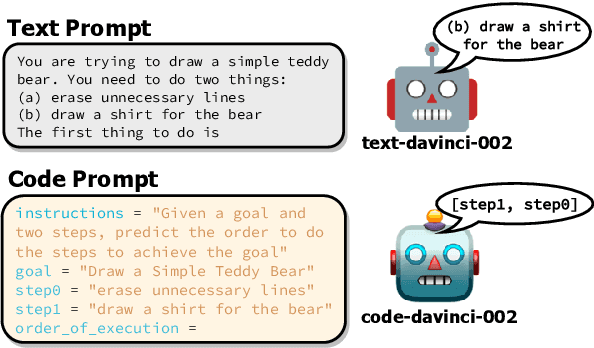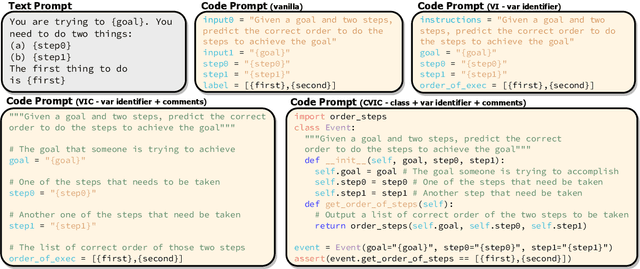Exploring the Curious Case of Code Prompts
Paper and Code
Apr 26, 2023



Recent work has shown that prompting language models with code-like representations of natural language leads to performance improvements on structured reasoning tasks. However, such tasks comprise only a small subset of all natural language tasks. In our work, we seek to answer whether or not code-prompting is the preferred way of interacting with language models in general. We compare code and text prompts across three popular GPT models (davinci, code-davinci-002, and text-davinci-002) on a broader selection of tasks (e.g., QA, sentiment, summarization) and find that with few exceptions, code prompts do not consistently outperform text prompts. Furthermore, we show that the style of code prompt has a large effect on performance for some but not all tasks and that fine-tuning on text instructions leads to better relative performance of code prompts.
 Add to Chrome
Add to Chrome Add to Firefox
Add to Firefox Add to Edge
Add to Edge